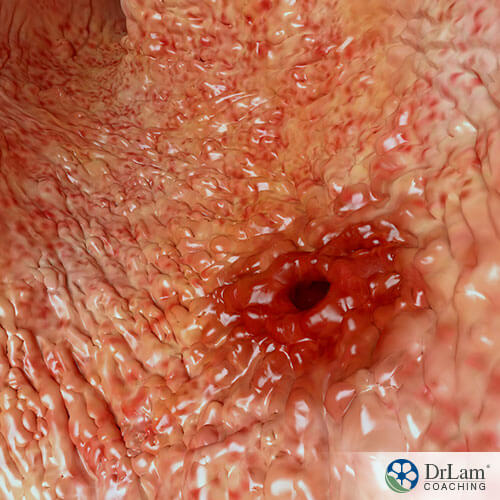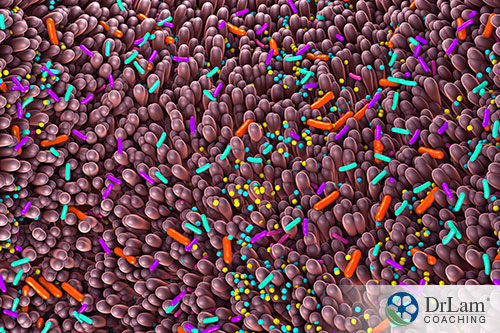 Gassiness can be incredibly embarrassing as well as uncomfortable. It’s often caused by digestive problems. Not only does it make you feel unwell, but it can also decrease your desire to go out in public. Fortunately, if you have excess gas because of inflammation, stress, or one of the many other problems that can contribute to it, there are several effective remedies for gassiness that you can try. Using one or a combination of these strategies could help calm your stomach and improve your health as well.
Gassiness can be incredibly embarrassing as well as uncomfortable. It’s often caused by digestive problems. Not only does it make you feel unwell, but it can also decrease your desire to go out in public. Fortunately, if you have excess gas because of inflammation, stress, or one of the many other problems that can contribute to it, there are several effective remedies for gassiness that you can try. Using one or a combination of these strategies could help calm your stomach and improve your health as well.
Your body produces gas naturally as a part of the digestive process. Healthy adults can expect to pass gas between 13 and 21 times every day. The gas that’s produced is usually a combination of oxygen, nitrogen, carbon dioxide, hydrogen, and methane. These products are produced as the body digests and absorbs all the sugar, proteins, fiber, and starches that you eat. These substances pass into the large intestine where they are disassembled by the gut, producing these gases. Most gas is odorless, though an unpleasant smell can occur because of the effects of bacteria in the large intestine. Gas can also be produced when you swallow too much air, which can come out as a belch or as flatulence.
However, there are also certain foods and conditions that can produce more gas than usual. This can become very uncomfortable and embarrassing in certain situations, which is why you may need remedies for gassiness. Excess gas can cause the following symptoms:
Everyone is different, so if you suffer from gassiness then you need to determine your own personal triggers.
There are a range of different things that can cause gassiness. One of the most common culprits is the food you eat, including:
If you suffer from gassiness after eating, it may be helpful to eliminate these foods from your diet and add them back slowly. If your symptoms reappear, then you can identify which foods are to blame. This is one of the easiest remedies for gassiness.
There are also several conditions that can cause excess gas. Some of them can be serious, which is why it’s important that you see your doctor if you suddenly experience gassiness. The conditions associated with this issue include:
 Peptic Ulcers
Peptic UlcersIt is important to make sure that your gassiness isn’t caused by a serious condition, so it's always a good idea to see your doctor about it. However, there are some effective remedies for gassiness that you can do at home. While there are certain medications you can take, it’s usually better to try to alleviate this problem naturally and without the added stress or damage that medications can cause.
Some effective natural remedies for gassiness include:

Certain lifestyle changes can also be effective remedies for gassiness. Here are some other steps you can take:
Modern life is full of stressors, from high-pressure work situations to lots of unhealthy food options. When stress becomes chronic, it can cause the adrenal glands to start to develop problems. The adrenals are a vital part of the NeuroEndoMetabolic (NEM) Stress Response because they produce cortisol, the stress hormone. When the body’s demand for cortisol is high over long periods, it can cause physical, mental, and emotional symptoms as well as imbalances throughout the body, including digestive problems. Ultimately, it can lead to Adrenal Fatigue Syndrome (AFS).
When you have adrenal fatigue, you need to be very careful about making changes to your lifestyle. Even changes that are designed to improve your health and lower your stress levels can create additional stress. And this will only further tax your already exhausted body. So, be cautious, and if you notice any adverse effects from these strategies, stop immediately and seek out expert help from someone who’s aware of AFS and the effects it can have on the body.
Gassiness and other digestive problems are extremely common in AFS. These issues can be caused by a poor diet, bacterial overgrowth, increased intestinal permeability, and the metabolic slowdown that occurs with high cortisol levels that allows the fermentation of food in the gut. It can also be caused by the imbalances that occur in the Inflammation circuit as the adrenals become fatigued.
The Inflammation circuit consists of the immune system, the gut, and the microbiome, which work in tandem to address stress. A key strategy for this is inflammation. The swelling, redness, and pain that accompanies inflammation are designed to rid the body of invaders or stressors that may be a threat to the body's health. But when stress is ongoing and can't be expelled, then inflammation has no real target and continues to build up in your body. Medical science is just starting to understand how harmful this can be and the role it can have in poor health.
When you have AFS, cortisol causes the immune system to become overactive, which can impair the natural function of the gut and the balance of the microbiome. Many people with AFS experience digestive symptoms as a result, such as constipation, diarrhea, gassiness, the overgrowth of bad bacteria in the gut, and IBS. These digestive symptoms add to the body’s high stress levels, cause more inflammation, impair nutrient absorption, and worsen circuit imbalances.
Additionally, stress and inflammatory foods can cause a breakdown in the barrier cells lining the gut. This breakdown can increase your intestinal permeability, which leads to toxins seeping into the bloodstream and causing more immune hyperactivity and inflammation.
One of the keys to healing is to reduce or eliminate the symptoms and imbalances that are causing the body so much stress. This includes reducing inflammation.
The remedies for gassiness can help with that. They can help to reduce your overall pain and discomfort. They will also encourage better overall digestive health and nutrient absorption. As your gut returns to better health, and the bacteria in your microbiome returns to a more natural balance, your immune system will naturally start to normalize as well.
The three systems in this circuit are strongly interconnected, so as the health of two systems improve, the health of the immune system will as well. Its level of activation will lower, decreasing inflammation throughout your body.
This return to better health will help your body rest and heal. And this is ideal for boosting your recovery.
 Gassiness can be caused by a variety of issues. If you have gas and it’s accompanied by other symptoms such as bleeding, nausea, vomiting, or fever, then make sure that you get it checked out by a doctor. But if the cause is relatively benign, then try some of these remedies for gassiness. This will not only alleviate your pain and discomfort, but it may also help fight inflammation and support your overall health.
Gassiness can be caused by a variety of issues. If you have gas and it’s accompanied by other symptoms such as bleeding, nausea, vomiting, or fever, then make sure that you get it checked out by a doctor. But if the cause is relatively benign, then try some of these remedies for gassiness. This will not only alleviate your pain and discomfort, but it may also help fight inflammation and support your overall health.
For those who are dealing with gassiness as part of broader health concerns like adrenal fatigue, integrating holistic lifestyle and dietary changes can be incredibly beneficial. Dr. Lam's Adrenal Fatigue Recovery Program offers targeted strategies to manage symptoms within the context of adrenal health recovery.
Excess gas can be caused by multiple conditions, both when you have AFS and when your digestive system is suffering from health problems overall. However, there are several remedies for gassiness that you can try, including supplements, enzymes, and spices.